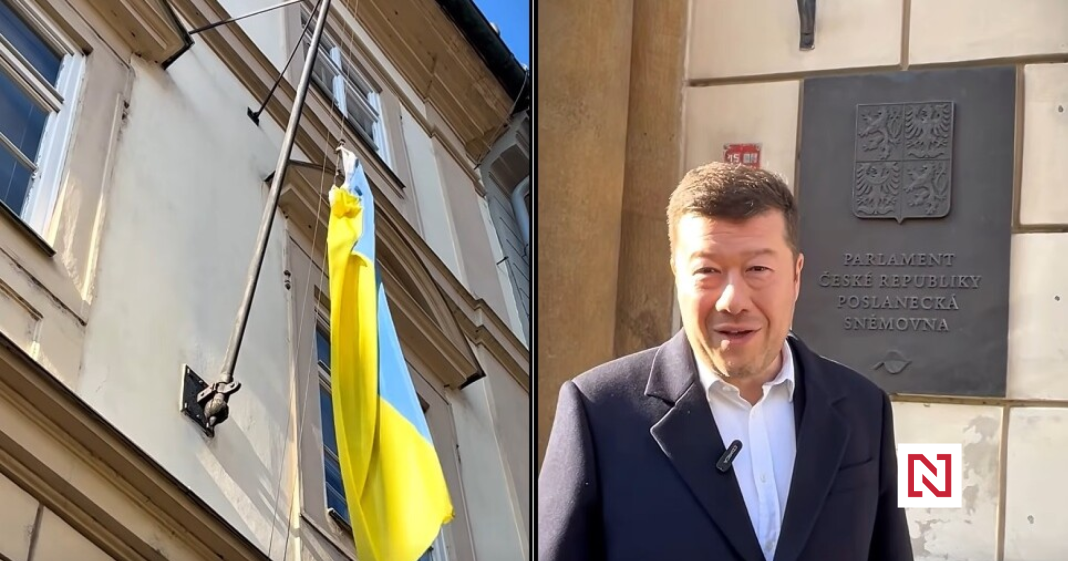The recent actions of Czech politician Tomio Okamura, who disrespected the Ukrainian flag, have stirred controversy both domestically and internationally. The implications of this incident extend far beyond personal reputation, potentially affecting Czech-Ukrainian relations and the broader societal landscape.
The Incident and Immediate Reactions

The incident occurred during a public event where Tomio Okamura was seen acting disrespectfully towards the Ukrainian flag. This act, captured on video, quickly spread across social media and news platforms, eliciting a range of reactions from various political figures and the general public. Criticism has been widespread, with many calling for official statements and apologies.
Okamura, known for his outspoken views, defended his actions by stating they were misinterpreted. However, this explanation did little to quell the outrage. The act has been deemed particularly offensive given the ongoing conflict in Ukraine and the sensitivity surrounding national symbols, reflecting poorly on Czechia’s diplomatic stance.
Consequences for Czech-Ukrainian Relations

The diplomatic repercussions of the incident could be significant. Ukraine, currently focusing on its sovereignty and national pride, may view the act as an affront, potentially straining relations with Czechia. Officials in Ukraine have already expressed their disapproval, demanding a formal response from the Czech government.
This situation places additional pressure on Czechia to navigate the diplomatic fallout carefully. The potential for damaged relations could affect various collaborative efforts, including economic partnerships and political support in international forums.
Impact on Czech Politics

Within Czechia, Okamura’s actions have prompted discussions on political decorum and responsibility. This event has rekindled debates about the role of politicians in setting an example for respectful discourse and international camaraderie.
Political analysts suggest that this could influence upcoming elections, with parties likely to leverage the incident to appeal to voters either through condemnation or support of Okamura’s nationalist tendencies. How the public responds could shape the political landscape, affecting both domestic and foreign policy directions.
Social Implications and Public Sentiment

Beyond politics, the incident has touched a nerve culturally. In an increasingly interconnected world, actions like these can lead to broader societal debates on nationalism, respect, and the treatment of foreign nationals and symbols. Public sentiment shows a division, with some Czech citizens supporting Okamura’s right to express his views, while others condemn the lack of respect shown.
This division highlights underlying tensions within Czech society, reflecting a larger European discourse on nationalism versus international cooperation. Educators and media figures stress the importance of understanding historical contexts and fostering appreciation for all cultures.
In conclusion, the divisive actions of Tomio Okamura have implications that reach beyond a single event, affecting diplomatic relations, political dynamics, and societal attitudes. Moving forward, Czechia must address these issues carefully to maintain its standing on both local and global stages.





